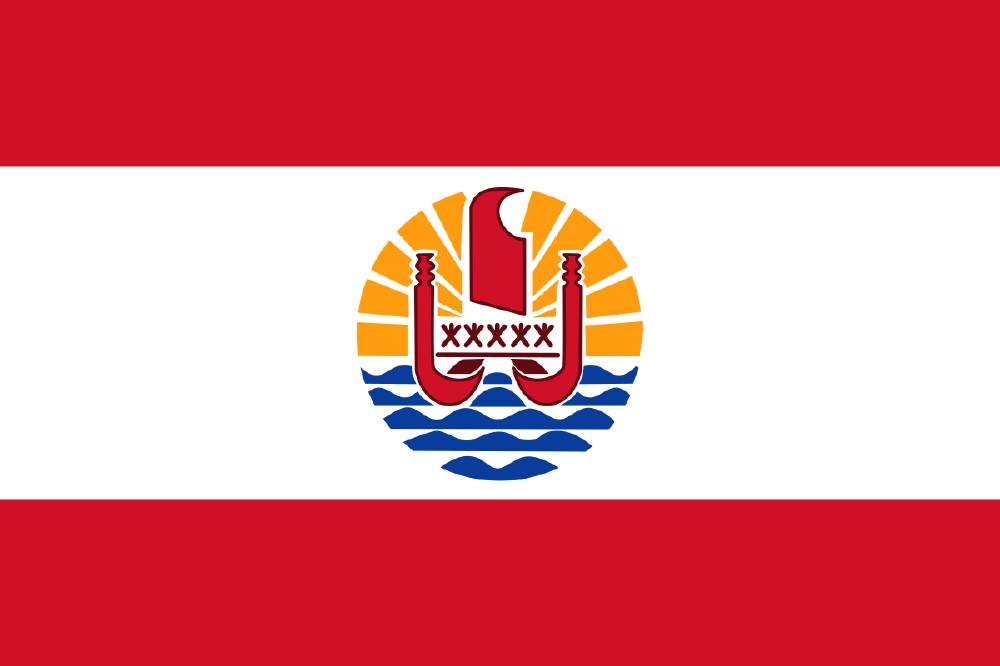This nation is in Vacation Mode for the next 532 turns. This nation cannot be attacked or traded with during that time.
Tahiti, the largest island in French Polynesia, is a stunning destination known for its breathtaking natural beauty and rich cultural heritage. Surrounded by turquoise waters and coral reefs, it offers a picturesque setting ideal for relaxation and adventure. The island features lush green mountains, cascading waterfalls, and sandy beaches, making it a paradise for nature lovers.
Tahiti's capital, Papeete, is a vibrant city where traditional Polynesian culture meets modern influences. Visitors can explore local markets, sample delicious cuisine, and discover the island's history at museums. The warm and welcoming people of Tahiti pride themselves on their traditions, and you can witness mesmerizing dance performances and handcrafted arts.
Outdoor enthusiasts can enjoy activities such as snorkeling, diving, and hiking. The island's diverse marine life and scenic trails are perfect for exploration. The famous black sand beaches, particularly at Papenoo, add to the island's unique charm.
With its idyllic landscapes, friendly locals, and rich cultural experiences, Tahiti captivates all who venture there, making it a dream destination for travelers seeking both adventure and tranquility. Whether you’re lounging under the sun or immersing yourself in local traditions, Tahiti promises unforgettable memories.
| National Factbook |
| Flag: |

|
| Nation Name: |
Tahiti |
| Leader Name: |
Nicky |
| Currency: |

CFP Franc |
| National Animal: |

Turtle |
| History: |
Tahiti, the largest island in French Polynesia, has a rich history that dates back over a thousand years. It was first settled by Polynesians around 1000 AD, who brought agricultural practices and established a hierarchical society based on chiefs. The island was known for its lush landscape and vibrant culture, including traditional dances, tattoos, and the worship of numerous deities.
European contact began in the 18th century with explorers like Captain James Cook, who visited in the 1760s. This exposure led to significant cultural exchanges and the eventual arrival of missionaries in the early 19th century, which brought Christianity and changed many traditional practices.
In 1880, Tahiti became a French protectorate and was later annexed as part of French Polynesia. The island experienced significant social and economic changes during French colonial rule, particularly with the introduction of cash crops like coffee and vanilla.
During World War II, Tahiti served as a vital military base for the Allies. In the post-war years, it developed a tourism industry, attracting visitors with its stunning landscapes and unique culture. Today, Tahiti remains a popular destination, blending its rich history with modern influences while preserving its Polynesian heritage. |
| Geography |
| Continent: |
Asia |
| Land Area: |
32,186.80 sq. km |
| Terrain: |
Tahiti, the largest island in French Polynesia, boasts a diverse and captivating terrain. The island is characterized by its mountainous interior, where majestic volcanic peaks rise dramatically from the lush lowlands. Mount Orohena, the highest point on the island, reaches about 2,241 meters (7,350 feet) and is often shrouded in clouds. The rugged mountains are interspersed with deep valleys and cascading waterfalls, creating a breathtaking backdrop.
Surrounding the mountains, the coastline features stunning black and white sand beaches, framed by crystal-clear turquoise lagoons. Coral reefs lie just offshore, teeming with vibrant marine life, making it a popular destination for snorkeling and diving. The interior valleys, such as the famous Papenoo Valley, are lush with tropical vegetation, including towering palm trees, fragrantflowers, and diverse wildlife.
Overall, Tahiti's terrain is a striking blend of lofty peaks, verdant valleys, and pristine beaches, offering breathtaking vistas and a rich natural environment. The island’s unique topography contributes to its reputation as a paradise for outdoor activities, including hiking, water sports, and exploring its vibrant culture amidst stunning surroundings. |
| Highest Peak: |
Mount Orohena,
2,241 meters
|
| Lowest Valley: |
Papenoʻo River,
1 meters
|
| Climate: |
Tahiti, the largest island in French Polynesia, enjoys a tropical climate characterized by warm temperatures and high humidity throughout the year. The island experiences two main seasons: the dry season, from May to October, and the wet season, from November to April. During the dry season, average temperatures range from 23 to 30 degrees Celsius (73 to 86 degrees Fahrenheit), with pleasant breezes and plenty of sunshine, making it an ideal time for outdoor activities and exploration.
In contrast, the wet season brings increased rainfall and humidity, with temperatures averaging between 24 to 32 degrees Celsius (75 to 90 degrees Fahrenheit). This period can also see occasional tropical storms or cyclones, though they are not frequent. The lush landscapes thrive during this time, resulting in vibrant greenery and stunning flora.
The ocean surrounding Tahiti maintains a warm temperature, typically between 26 to 30 degrees Celsius (79 to 86 degrees Fahrenheit), making it perfect for swimming, snorkeling, and diving year-round. Overall, the climate in Tahiti is inviting and generally favorable for travelers seeking a tropical paradise with beautiful beaches and rich natural beauty. |
| People & Society |
| Population: |
359,193 people |
| Demonym: |
Tahitian |
| Demonym Plural: |
Tahitians |
| Ethnic Groups: |
Tahitians - 70.0%
Chinese - 8.7%
Demis (Mixed) - 5.4% |
| Languages: |
French - 73.9%
Tahitian - 20.2%
Marquesan - 2.6% |
| Religions: |
Protestantism - 54.0%
Catholicism - 22.9%
Mormons - 2.5% |
| Health |
| Life Expectancy: |
84 years |
| Obesity: |
48.8% |
| Alcohol Users: |
43.7% |
| Tobacco Users: |
17.2% |
| Cannabis Users: |
2.1% |
| Hard Drug Users: |
0% |
| Economy |
| Description: |
Tahiti, the largest island in French Polynesia, has a diverse economy primarily driven by tourism, agriculture, and fishing. The breathtaking landscapes, crystal-clear waters, and rich culture make it a popular destination for travelers seeking luxury and adventure. Tourism is the cornerstone of Tahiti's economy, contributing significantly to employment and local businesses. Visitors flock to enjoy the idyllic beaches, vibrant coral reefs, and unique Polynesian experiences.
Agriculture also plays a vital role, with products such as vanilla, coconut, and breadfruit cultivated for both local consumption and export. Tahiti is renowned for its high-quality vanilla, often sought after in the gourmet market. In addition to this, the fishing industry, with its abundant marine resources, supports both local livelihoods and export opportunities.
However, the economy faces challenges, including reliance on imports for many goods, which can lead to vulnerabilities. Efforts are being made to enhance sustainability and diversify the economy to reduce dependency on tourism and imports. As the global market evolves, Tahiti aims to balance economic growth with environmental preservation, ensuring that its natural beauty and cultural heritage remain intact for future generations. |
| Average Yearly Income: |
$91.83 |
| Gross Domestic Product (GDP): |
$737,237,391.00 |
| GDP per Capita: |
$2,052.48 |
| Gross National Income (GNI): |
$389,475,805.00 |
| Industries: |
Tahiti, the largest island in French Polynesia, has a diverse economy primarily driven by tourism, agriculture, and fishing.
Tourism is the dominant industry, attracting visitors with its stunning landscapes, vibrant culture, and luxurious resorts. The island's pristine beaches, coral reefs, and unique traditions make it a popular destination for honeymooners and travelers seeking adventure. The tourism sector not only provides direct employment but also stimulates growth in related industries, including hospitality, transportation, and local crafts.
Agriculture plays a vital role in Tahiti's economy, with the cultivation of crops such as vanilla, coconut, and breadfruit. Vanilla, in particular, is a valuable export, highly sought after for its quality. The local agricultural practices are often sustainable, contributing to the preservation of the island's natural resources.
Fishing is another critical industry, with many locals relying on the ocean for their livelihood. Sustainable fishing practices are emphasized to maintain marine biodiversity and ensure that fish populations remain healthy.
In recent years, Tahiti has also begun to explore industries such as renewable energy, leveraging its natural resources to promote sustainability and reduce reliance on imported fuels. Overall, the combination of these industries forms the backbone of Tahiti's economy, supporting its communities and preserving its unique environment. |
| Military |
| History: |
Tahiti, part of French Polynesia, has a unique military context, primarily due to its status as an overseas collectivity of France. While the island itself does not maintain its own military forces, France is responsible for its defense under the French government. This includes the presence of the French Armed Forces in the Pacific region, which supports both national defense and regional stability.
Historically, Tahiti was a significant site for French nuclear testing from the 1960s to the early 1990s, which has left a lasting impact on the environmental and geopolitical landscape. The military presence has shifted focus over the years, with modern efforts emphasizing disaster relief and humanitarian missions. The French military’s role extends to surveillance, maritime security, and collaboration with neighboring Pacific nations to enhance regional cooperation.
The Tahitian people maintain a complex relationship with the French military presence, balancing cultural identity with the benefits of security provided by France. While local sentiments vary, Tahiti remains strategically important for France, reflecting the broader geopolitical dynamics in the South Pacific. Overall, the military's influence in Tahiti is intertwined with its historical legacy, contemporary security needs, and the aspirations of its residents. |
| Soldiers: |
0 |
| Tanks: |
0 |
| Aircraft: |
0 |
| Ships: |
0 |
| Missiles: |
6 |
| Nuclear Weapons: |
0 |
| Last Updated: 12/11/2024 11:45 am |













